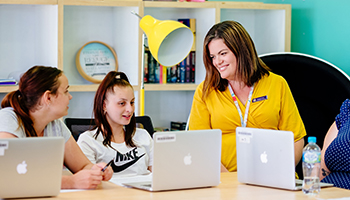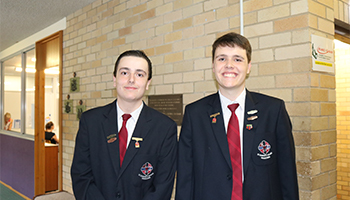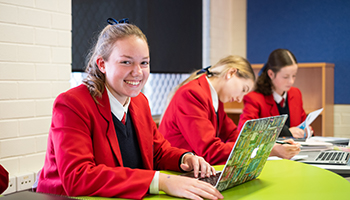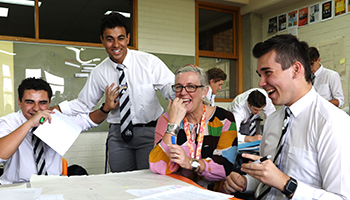School leaders and teachers can gain strategies to support students’ needs during the pandemic by listening to their concerns, particularly those in their final years of schooling.
If student wellbeing is one of the aims of NSW independent schools, then students need to feel their voices are heard. This is especially true during adolescence when the quest for autonomy is increased and independence muscles are flexed.
Student voice is deeply connected to resilience and wellbeing because it enhances their sense of belonging to their school community.
During this time students also need greater support to develop their social and emotional learning skills such as communication, problem-solving, help-seeking and decision-making - all competencies to strengthen their growing voice and to be resilient, respectful and safe.

Student voice is deeply connected to resilience and wellbeing.
Student voice is deeply connected to resilience and wellbeing because it enhances their sense of belonging to their school community. Connection is one of the strongest protective factors and predictors of wellbeing, especially in times of change such as the effects of lockdown from the COVID-19 pandemic.
The Mission Australia special report unpacks students’ concerns over the past year related to study stress, reinforces the importance of connection and what students need when they experience lower levels of wellbeing.
All students need guidance at different periods of their life to participate in meaningful decision-making related to issues that impact them. The notion of ‘nothing about us, without us’, which is explored in the 2021 AISNSW Wellbeing Literature Review, champions broader whole-school approaches to student voice so all students can participate, rather than limiting opportunities to students in leadership roles. Authentic student voice allows diverse student perspectives to be heard and promotes an inclusive school climate.

The 2021 AISNSW Wellbeing Literature Review champions broader whole-school approaches to student voice.
Mission Australia Youth Survey special report
In July 2021, Mission Australia released a special report Young Voices of the Pandemic: Youth Survey COVID 2020 drawing on the responses of its annual youth survey, which analyses the voices and perspectives of young people in Australia aged between 15-19. The report highlights the needs of students during this crucial time. It unpacks students’ concerns over the past year related to study stress, reinforces the importance of connection and what students need when they experience lower levels of wellbeing.

Student voice enhances wellbeing outcomes.
In the initial survey, students were asked, ‘In the past year, what is the biggest issue you have been dealing with? What do you think needs to be done about it?’ In response, the report offers suggestions in supporting students. These include:
- guiding students to help-seek when feeling concerned about study, feeling isolated from peers or experiencing lower levels of wellbeing
- provide additional wellbeing resources for those students completing their final years of school
- offering flexibly delivered, proactive wellbeing and early mental health intervention support
- providing additional school-based wellbeing resources and services to support student wellbeing in schools (and through outreach programs).
Supporting students to be active participants involved in decisions and solutions that affect them can only enhance wellbeing and learning outcomes for all.
All schools support students to develop strategies for maintaining their own wellbeing in different ways. To add to this support, AISNSW’s Learning from Home Portal has a designated Whole-school Wellbeing section to support teachers, leaders and families. Resources including infographics and factsheets are available for schools whether learning from home or on campus.

The 2021 Mission Australia Youth Survey is open until 16 August.
2021 Mission Australia Youth Survey is open
The 2021 Mission Australia Youth Survey is open until Friday 16 August. Complimentary individual Youth Survey reports are available for schools where a minimum of 100 students completed the survey. This data can then be used to tailor wellbeing support and K-10 PDHPE teaching and learning activities for each school context.
For additional support, please contact AISNSW Wellbeing and PDHPE Consultants.
Photo credit: With thanks to Lakes Grammar, St Philip's College DALE Young Parents, St Edmund's College Wahroonga, Calrossy Anglican School and St Stanislaus College.
New to AISNSW and want to receive AISNSW Education News updates? Click here to register, and select ‘AISNSW Education News’ on the Areas of Interest/Subscriptions page.
#wellbeing #studentwellbeing